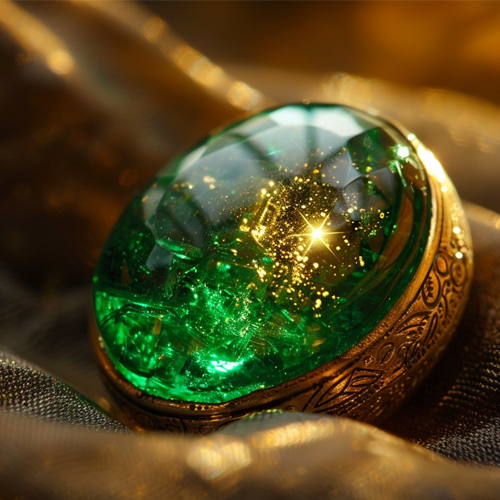The Golden Scepter of Nekhen is more than an artifact—it is a relic of ultimate power, entwined with the very foundations of ancient Egyptian rule. Said to have been wielded by the first Pharaohs, the scepter was not merely a symbol of kingship, but an instrument through which divine favor was channeled. Legends whisper that Horus himself bestowed the scepter upon the rulers of Nekhen, granting them the strength to unite Upper and Lower Egypt. To hold it was to wield the will of the gods, to command the land, the people, and even the unseen forces that shaped reality.
The origins of the scepter date back to the Predynastic Period, long before the rise of the great pyramids. Ancient texts, including those found in the Temple of Horus at Edfu, speak of an unnamed warrior-king who first grasped the scepter, transforming from a mere chieftain into the first true Pharaoh. With it, he called forth the might of the celestial falcon and led his people to victory against the warlords who sought to fracture the land. The artifact was said to hum with divine energy in his hands, repelling assassins, nullifying curses, and striking terror into the hearts of his enemies.
Throughout the centuries, the scepter passed through the hands of Pharaohs, priests, and conquerors. It was displayed in the inner sanctum of Nekhen, brought forth only during sacred ceremonies that reaffirmed the Pharaoh’s right to rule. However, as Egypt’s power waned, the scepter vanished from historical records. Some believe it was buried with the last true Pharaoh, locked away in a tomb so well-hidden that even the most seasoned grave robbers never laid eyes upon it. Others claim it was stolen by a renegade priesthood, desperate to sever the connection between the divine and the earthly rulers.
The scepter has since become the subject of fevered speculation. Treasure hunters have scoured the lost temples of Upper Egypt, driven by whispers that the scepter still lies hidden, waiting for the next ruler worthy of its power. Occultists claim it is a conduit for supernatural forces, while historians argue it is merely an ornamental artifact, albeit one of immense cultural significance. Despite centuries of searching, the true fate of the Golden Scepter of Nekhen remains a mystery, one buried beneath the shifting sands of history.
Yet, for those who dare to seek it, one truth remains: the scepter does not merely grant power—it demands it. Those who are unworthy, who seek it for personal gain or in defiance of fate, are doomed to suffer the wrath of the gods. The path to the scepter is riddled with traps both physical and mystical, guarded by forces beyond mortal comprehension. But for the one who can claim it and withstand its weight, the Golden Scepter of Nekhen offers a kingdom beyond any that history has ever known.



